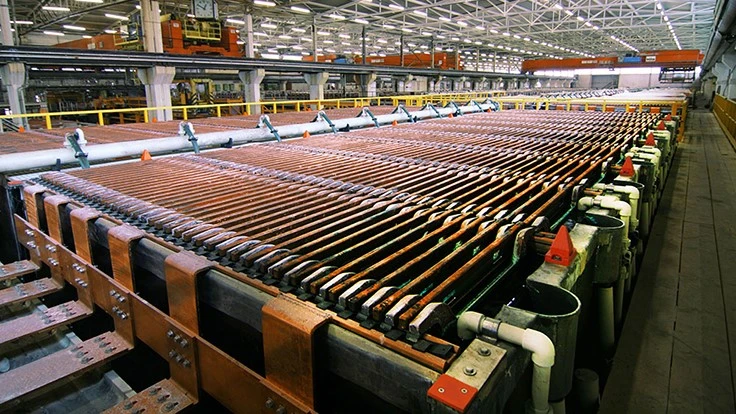
Photo courtesy of Aurubis
Three different metals producers are asking governments in Europe and the United States to take greater measures to block Russian-made metal from gaining market share in those regions.
Reuters has reported that U.S.-based aluminum producer Alcoa, Germany-based copper maker Aurubis and Norway-based aluminum producer Hydro all have voiced their concerns to legislators or trade regulators on the two continents. All three companies have operations in both Europe and North America.
In mid-October, Reuters reported Alcoa had been “lobbying the White House” to block Russian aluminum exports into the U.S., citing Russia’s artillery strikes on civilian targets. Reuters at that time said the Biden administration was considering aluminum import restriction measures, “including possibly blocking Rusal,” the Russian-based aluminum producer, from selling its products in the U.S.
Earlier this week, reports from London Metal Exchange LME Week quoted Aurubis Chief Executive Roland Harings and Hydro CEO Hilde Merete Aasheim as being in favor of having more restrictions placed on Russian-made metal.
Harings’ concerns were tied in part to metal pouring into LME warehouses, a problem that exchange has acknowledged it is studying. Reuters quotes Harings as saying, “The supply of Russian [copper] cathode into LME stocks has to be stopped because we see from our customer base there is no interest, even if there are no sanctions, to take Russian metal.”
Aasheim, at the same event, told a Reuters reporter, “We want to urge sanctions in both Europe and the U.S.” against Russian metal, which she said was enjoying a low-energy-cost advantage. “Our European industry shuts down, while [we] see Russian production at the same level as before the invasion, so they are benefiting."
Users of aluminum have not been as quick to embrace such tactics, though the current unpopularity of Russia on the world stage has likely prevented manufacturing or automotive trade associations from issuing public comments on the situation.
Latest from Recycling Today
- Aqua Metals secures $1.5M loan, reports operational strides
- AF&PA urges veto of NY bill
- Aluminum Association includes recycling among 2025 policy priorities
- AISI applauds waterways spending bill
- Lux Research questions hydrogen’s transportation role
- Sonoco selling thermoformed, flexible packaging business to Toppan for $1.8B
- ReMA offers Superfund informational reports
- Hyster-Yale commits to US production





